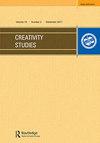FOSTERING A LINK BETWEEN CREATIVITY AND CONSUMER ACCEPTANCE: ESSENTIAL FACTORS FOR ADVANCING INNOVATIONS IN FOOD INDUSTRY
Q1 Social Sciences
引用次数: 0
Abstract
This research aims to explore the acceptance of unconventional food products that convey creative solutions for sustainable food production and consumption. This paper presents the first stage results of an extensive Baltic Sea region’s population survey organized to understand how innovative food products’ creators could better enhance the link between sustainable products and different segments’ customer acceptance. In scope of this study, the authors focused on youth market segments, who are known for their adventurous and experimental eating habits. The authors hypothesized that products that have been created to comply with socially responsible and sustainable food products’ requirements face resistance from the youth who do not view them as superior to conventional ones. The cross-sectional study utilized mixed-method methodology, combining qualitative and quantitative approaches, including a literature review, in-depth focus group interviews, and comparative analysis using normal distribution assessment and sentiment classification. The research findings indicate that while the youth acknowledge the social and environmental benefits of innovative food products, they remain hesitant to adopt them personally. Therefore, it is vital for innovative food creators to understand the biases and behaviors of young consumers, ensuring transparency about product contents, motivating them to embrace new consumption models, try unconventional foods, and highlight the personal and societal advantages of purchasing these items.促进创造力与消费者接受度之间的联系:推动食品工业创新的基本要素
这项研究旨在探讨人们对那些为可持续食品生产和消费提供创新解决方案的非传统食品的接受程度。本文介绍了波罗的海地区广泛的人口调查的第一阶段结果,该调查旨在了解创新食品的创造者如何更好地加强可持续产品与不同细分市场客户接受度之间的联系。在这项研究中,作者将重点放在年轻人市场上,他们以喜欢冒险和尝试的饮食习惯而闻名。作者假设,符合社会责任和可持续食品要求的产品会受到年轻人的抵制,因为他们并不认为这些产品优于传统产品。这项横向研究采用了混合方法,结合了定性和定量方法,包括文献综述、深入的焦点小组访谈,以及使用正态分布评估和情感分类进行的比较分析。研究结果表明,虽然年轻人认可创新食品的社会和环境效益,但他们对于是否亲自采用这些产品仍然犹豫不决。因此,创新食品的创造者必须了解年轻消费者的偏见和行为,确保产品内容的透明度,激励他们接受新的消费模式,尝试非传统食品,并强调购买这些产品对个人和社会的益处。
本文章由计算机程序翻译,如有差异,请以英文原文为准。
求助全文
约1分钟内获得全文
求助全文
来源期刊

Creativity Studies
Social Sciences-Cultural Studies
CiteScore
3.20
自引率
0.00%
发文量
38
审稿时长
15 weeks
期刊介绍:
Creativity Studies accepts original research articles with a focus on communication within the creative society. The journal welcomes contributions from scholars from diverse disciplines such as philosophy, sociology, history, political, communication and information sciences. Creativity Studies also publishes survey papers and descriptions of academic events in this area. The journal issues will be organized around different issues on creativity.
 求助内容:
求助内容: 应助结果提醒方式:
应助结果提醒方式:


